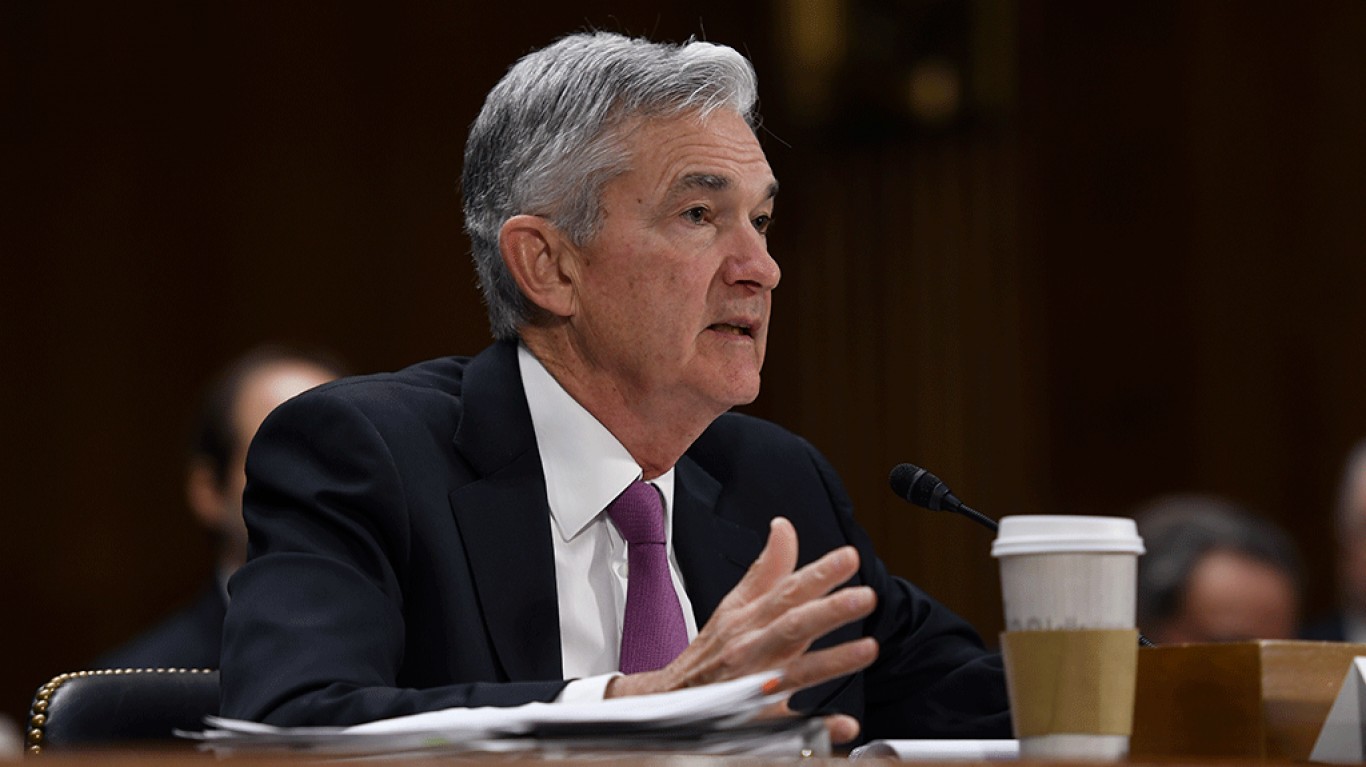
The Federal Reserve on Monday released individual bank capital requirements that become effective on October 1. The requirements were based on the results of stress test scores reported in June.
The two banks with the highest CET1 (common equity tier 1) capital requirements are Goldman Sachs Group Inc. (NYSE: GS) and Morgan Stanley (NYSE: MS) with CET1 requirements of 13.70% and 13.40%, respectively.
The total CET1 requirement comprises a minimum requirement of 4.5%, a stress capital buffer (SCB) of at least 2% and a surcharge of at least 1% for global systemically important banks (GSIBs). Eleven banks posted a total CET1 requirement of at least 10%.
The Fed also noted that it “supports banking organizations that choose to use their capital buffers to lend to households and businesses and undertake other supportive actions in a safe and sound manner.” Big banks with large trading operations (like Goldman Sachs and Morgan Stanley) pay a higher GSIB surcharge.
| Bank | Minimum CET1 | SCB | GSIB surcharge | CET1 Capital Required |
|---|---|---|---|---|
| Goldman Sachs | 4.50% | 6.70% | 2.50% | 13.70% |
| Morgan Stanley | 4.50% | 5.90% | 3.00% | 13.40% |
| Deutsche Bank | 4.50% | 7.80% | n/a | 12.30% |
| Credit Suisse | 4.50% | 6.90% | n/a | 11.40% |
| JPMorgan | 4.50% | 3.30% | 3.50% | 11.30% |
| UBS | 4.50% | 6.70% | n/a | 11.20% |
| BNP Paribas | 4.50% | 6.40% | n/a | 10.90% |
| BMO Financial | 4.50% | 6.00% | n/a | 10.50% |
| HSBC | 4.50% | 5.70% | n/a | 10.20% |
| Capital One | 4.50% | 5.60% | n/a | 10.10% |
| Citigroup | 4.50% | 2.50% | 3.00% | 10.00% |
Five banks had requested reconsideration of their stress test results: Goldman Sachs, BMO, Capital One, Citizens Financial and Regions Financial. The Fed reviewed and analyzed the results, checking for errors and ensuring that the stress test models worked as intended within the stress test framework. The Fed affirmed its earlier results.
For the third quarter, the Fed had suspended share repurchases, capped dividend payments at the second-quarter levels and limited dividend payments to the average of the firm’s net income for the preceding four calendar quarters.
The capital requirements announcement did not have a negative effect on the share prices of the largest U.S. banks. JPMorgan Chase & Co. (NYSE: JPM) traded up nearly 2% at $101.27, and Bank of America Corp. (NYSE: BAC) traded up 2.2% at $26.69. Citigroup Inc. (NYSE: C) traded up about 1.4% at $52.87, while Goldman Sachs traded up 0.90% at $210.02 and Morgan Stanley traded up about 0.70% at $50.70.
In 20 Years, I Haven’t Seen A Cash Back Card This Good
After two decades of reviewing financial products I haven’t seen anything like this. Credit card companies are at war, handing out free rewards and benefits to win the best customers.
A good cash back card can be worth thousands of dollars a year in free money, not to mention other perks like travel, insurance, and access to fancy lounges.
Our top pick today pays up to 5% cash back, a $200 bonus on top, and $0 annual fee. Click here to apply before they stop offering rewards this generous.
Flywheel Publishing has partnered with CardRatings for our coverage of credit card products. Flywheel Publishing and CardRatings may receive a commission from card issuers.
Thank you for reading! Have some feedback for us?
Contact the 24/7 Wall St. editorial team.



